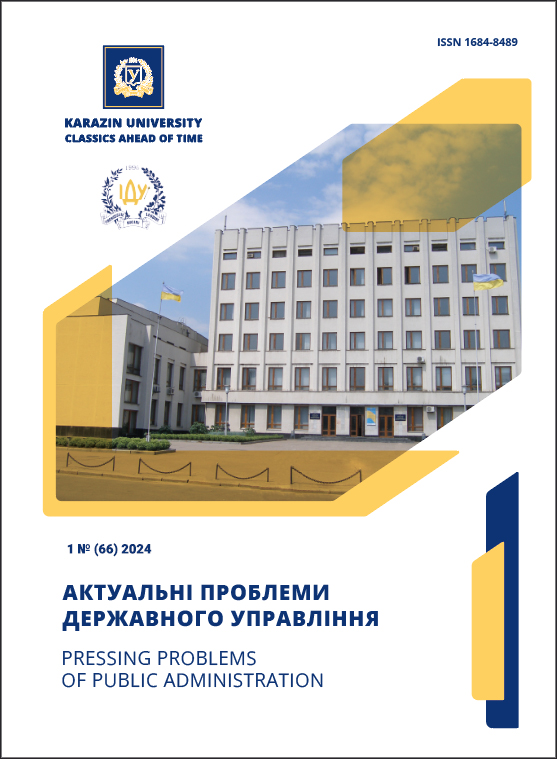Transformation of educational paradigms in the context of global changes: will digitized reputation become a strategic resource of the new world order?
Abstract
The article explores the phenomenon of educational paradigm transformation under the influence of digitalization and artificial intelligence development, as well as the potential of tokenized reputation as an innovative mechanism for verification and capitalization of personal capital in the new world order. Based on systematic analysis, a fundamental crisis of traditional educational models has been identified, caused by the devaluation of structured information’s value due to its accessibility through AI systems. The study demonstrates that in conditions where the ability to reproduce knowledge loses its uniqueness, the development of multidimensional personal capital, including aspects inaccessible to algorithmic imitation, becomes particularly important. The concept of tokenized reputation is substantiated as a technological infrastructure for verification and capitalization of holistic personal potential, based on decentralized mechanisms of multiple attestations, overcoming the dichotomy between economically-oriented and holistic approaches to education. The research methodology combines historical-logical, systemic, and comparative approaches, employing both theoretical modelling and scenario analysis to conceptualize the tokenized reputation phenomenon and its implementation potential. This work represents the first comprehensive attempt to integrate blockchain technology principles with educational transformation theories in the context of global geopolitical cycles. A comparative analysis of various approaches to education modernization in digital transformation has been conducted, including AI-adaptive learning, micro-credential models, educational metaverses, communitarian approaches, as well as state-controlled digitalization, corporate ecosystems, and sovereign platforms. The potential of tokenized reputation as an integration mechanism capable of combining the advantages of different approaches and ensuring synergy of corporate and public education management transformations is revealed. Special attention is paid to the prospects of implementing the tokenized reputation concept in Ukraine for verification and capitalization of human potential in post-war reconstruction and European integration. A practical case of using decentralized information platforms to create a system for verifying the competencies of demobilized military personnel and youth studying abroad is proposed. The strategic importance of forming a national tokenized reputation infrastructure to ensure competitiveness in the new multipolar world order is substantiated.
Downloads
References
Varoufakis, Y. (2018). Talks with my daughter about economics. Lviv: Vydavnytstvo Staroho Leva. [in Ukrainian].
Weber, M. (2012). Economy and society. Kyiv: Vydavnychyi dim Vsesvit. [in Ukrainian].
Kud, A.A. (2020). The phenomenon of virtual assets: Economic and legal aspects. International Journal of Education and Science, no. 3(3), 30–42. [in Ukrainian].
Kud, A. (2022). Modernization of the public administration system in the era of information platforms: monograph. Kharkiv: Pravo. DOI: https://doi.org/10.31359/9789669984296 [in Ukrainian].
Tapscott, D., & Tapscott, A. (2019). Blockchain revolution: How the technology behind bitcoin and other cryptocurrencies is changing the world (Y. Hryhorenko & A. Dudchenko, Trans.). Lviv: Litopys. [in Ukrainian].
Botsman, R. (2017). Who can you trust?: How technology brought us together and why it might drive us apart. New York: PublicAffairs.
Bourdieu, P., & Passeron, J-C. (1970). La reproduction: Éléments pour une théorie du système d’enseignement. Paris: Les Éditions de Minuit.
Christensen, C.M., Horn, M.B., & Johnson, C.W. (2008). Disrupting class: How disruptive innovation will change the way the world learns. New York: McGraw-Hill.
Cormier, D. (2008). Rhizomatic education: Community as curriculum. Innovate. Journal of Online Education, 4(5), Article 2. URL: https://surl.li/cvqykz
Dalio, R. (2021). Principles for dealing with the changing world order: Why nations succeed and fail. New York: Avid Reader Press / Simon & Schuster.
Dalio, R. (2021). The changing world order: Why nations succeed and fail. New York: Avid Reader Press.
European Commission. (2025). AI Continent Action Plan: Communication from the Commission to the European Parliament, the Council, the European Economic and Social Committee and the Committee of the Regions (COM(2025) 165 final). Brussels: European Commission.
Fullan, M. (2001). The new meaning of educational change (4th ed.). New York: Teachers College Press. URL: https://surl.li/kguyew
Illich, I. (1971). Deschooling society. New York: Harper & Row. URL: https://surli.cc/lvzvxs
Jacob, W., Cheng, S., & Porter, M. (2015). Indigenous education: Language, culture, and identity. DOI: https://doi.org/10.1007/978-94-017-9355-1
Koller, D. (2012, June). What we’re learning from online education. TED Talks. URL: https://surl.li/iszbvf
Luke, A. (2009). On indigenous education. Teaching Education, no. 20(1), 1–5. DOI: https://doi.org/10.1080/10476210902724011
Marken, S. (2023). Americans value college education despite barriers. Gallup Group. URL: https://news.gallup.com/poll/505727/americans-value-college-education-despite-barriers.aspx
Mitra, S. (2006). The hole in the wall: Self-organising systems in education. New Delhi: Tata-McGraw-Hill.
Putnam, R.D. (2000). Bowling alone: The collapse and revival of American community. New York: Simon & Schuster.
Reich, J., & Ruipérez-Valiente, J.A. (2019). The MOOC pivot. Science, no. 363(6423), 130–131. URL: https://surl.li/xwhfch
Siemens, G. (2005). Connectivism: A learning theory for the digital age. International Journal of Instructional Technology and Distance Learning, no. 2(1), 3–10. URL: https://surl.li/nwpsdp
Swan, M. (2015). Blockchain: Blueprint for a new economy. Sebastopol: O’Reilly Media. URL: https://surl.li/gehubf
Tapscott, D., & Tapscott, A. (2016). Blockchain revolution: How the technology behind bitcoin is changing money, business, and the world. New York: Portfolio.
Tapscott, D., & Williams, A.D. (2006). Wikinomics: How mass collaboration changes everything. New York: Portfolio. URL: https://surl.li/hcrzjc
Tyack, D., & Cuban, L. (1995). Tinkering toward utopia: A century of public school reform. Cambridge: Harvard University Press. URL: https://surli.cc/gehnjy
WEF. (2025). The future of jobs report 2025. Geneva: World Economic Forum. URL: https://surl.li/dcsvvb/
Zuboff, S. (2019). The age of surveillance capitalism: The fight for a human future at the new frontier of power. New York: PublicAffairs.
Copyright (c) 2025 Pressing Problems of Public Administration

This work is licensed under a Creative Commons Attribution 4.0 International License.

